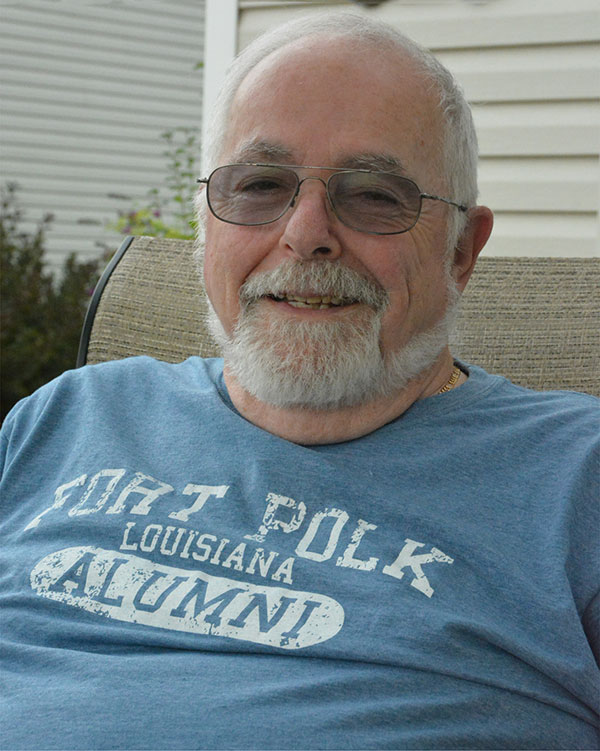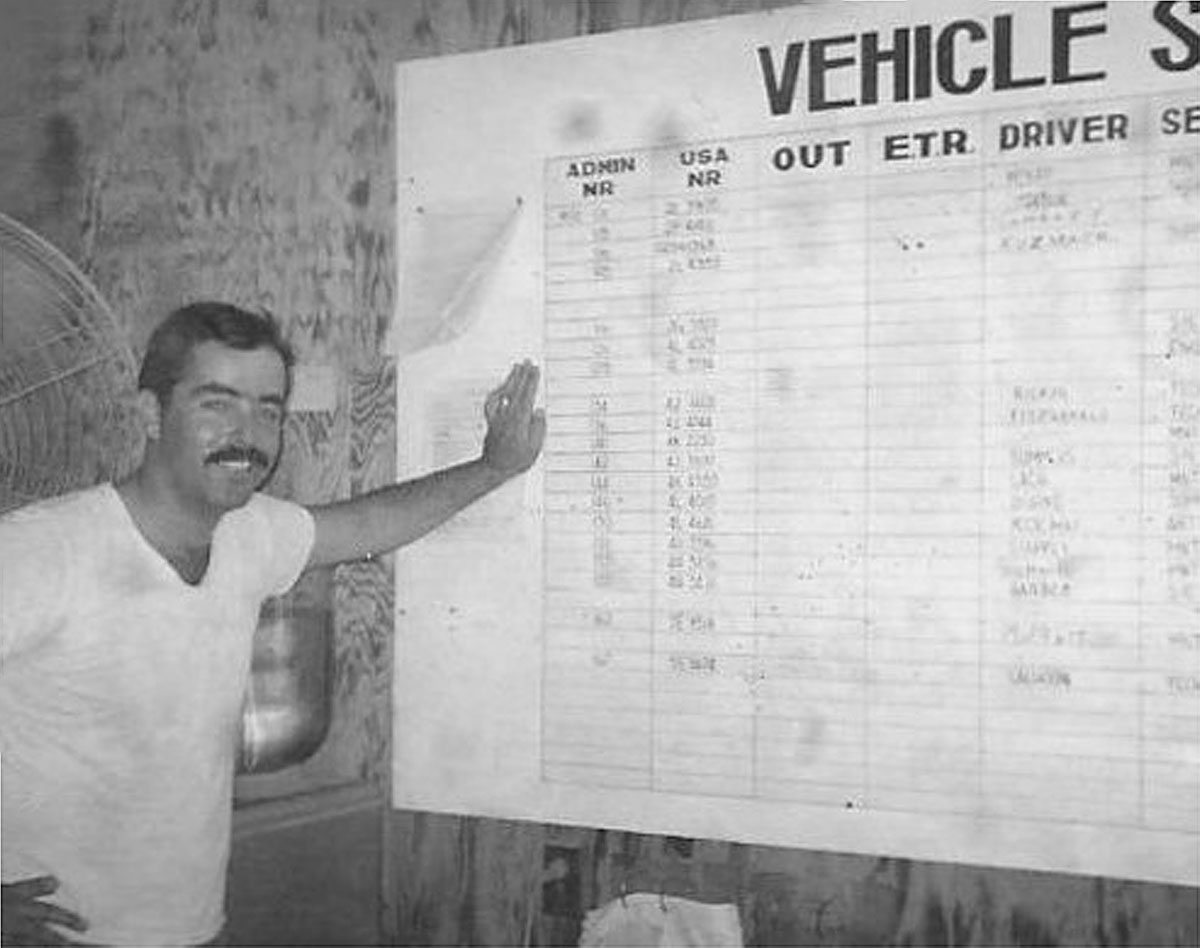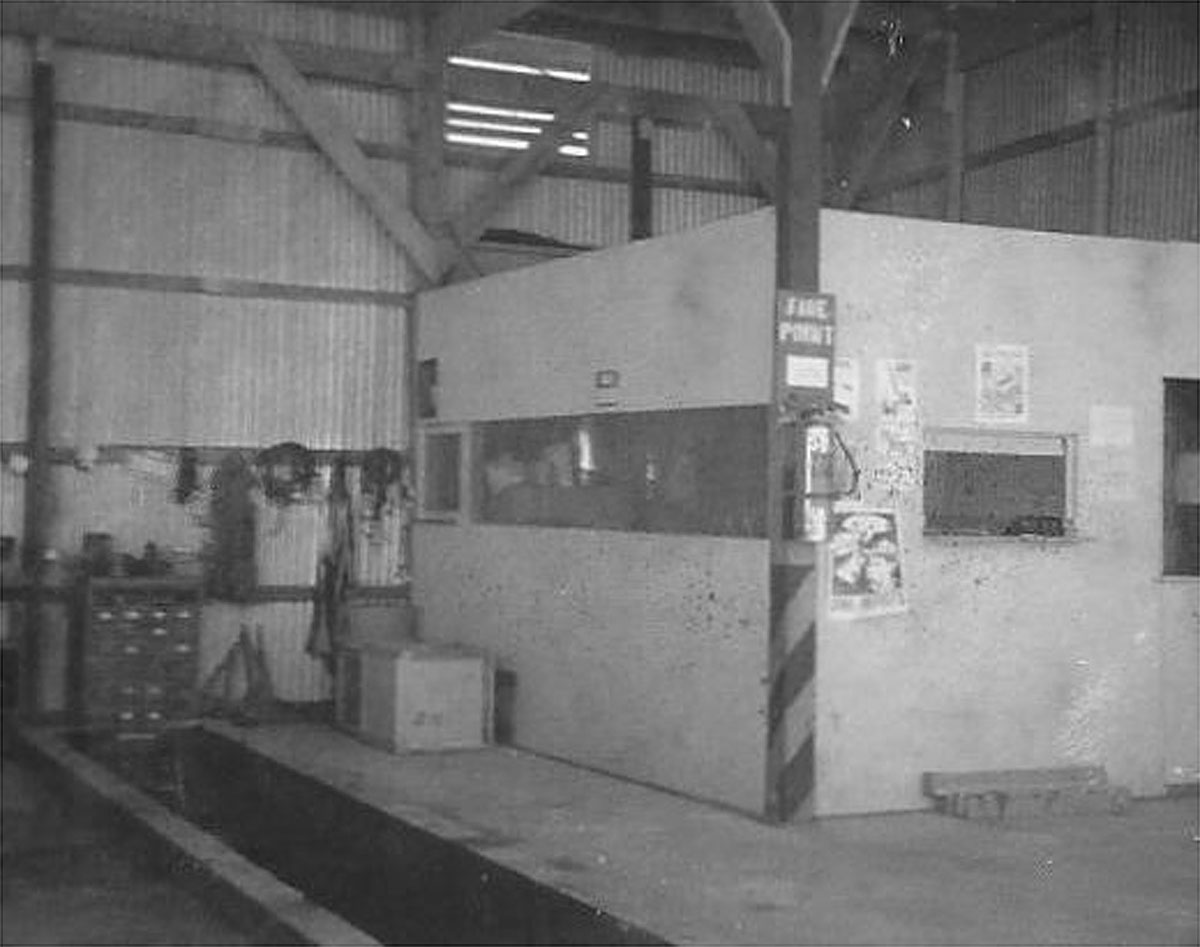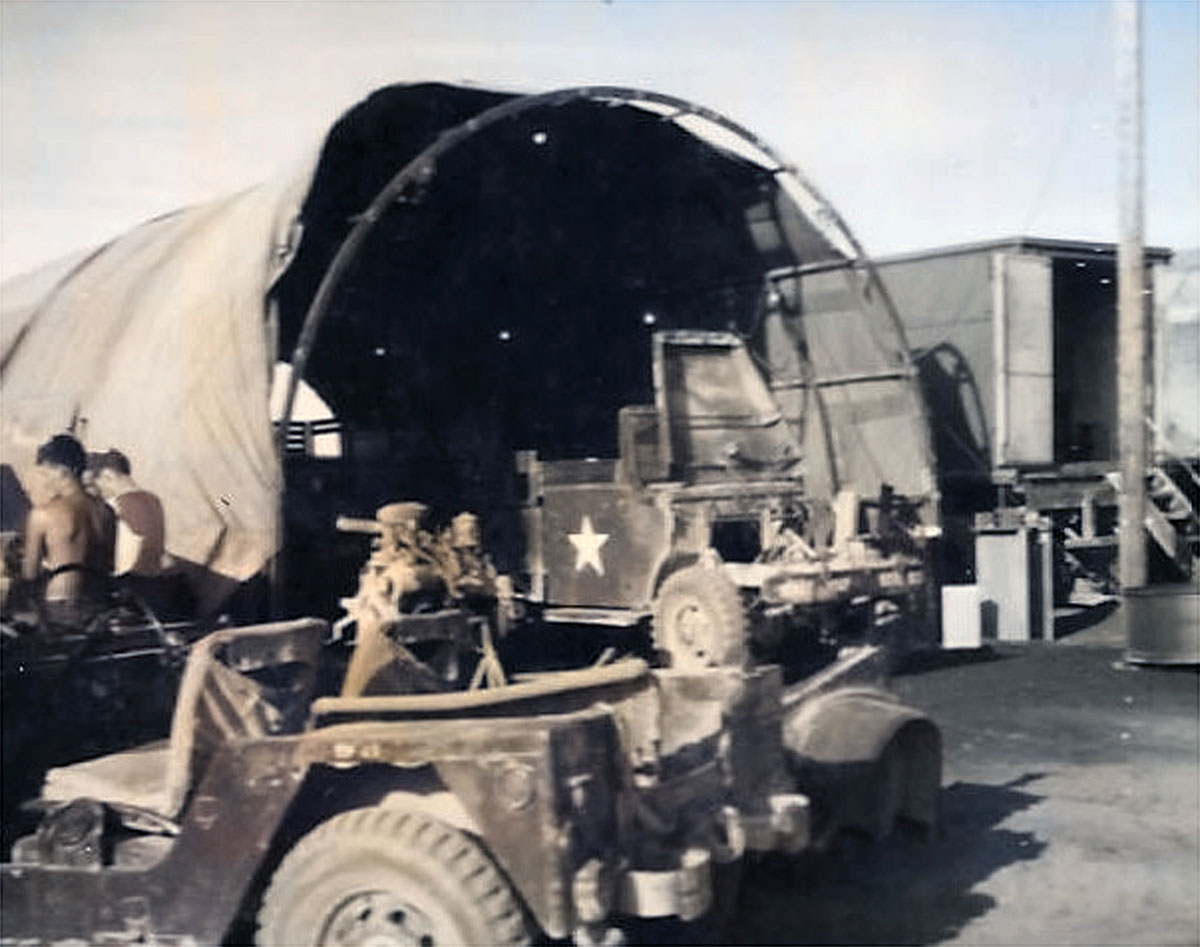U.S. Army Vietnam War Huntley, IL Flight date: 10/27/21
By Jack & Ellen Walsh, Honor Flight Chicago Veteran Interview Volunteer
Before college, Bob Sussman had lived all over the country, but never in one place longer than a year and a half. Even though his family was from the Chicago area, his Dad worked construction, and they moved where the work was. He graduated from high school in Phoenix, where his Dad was working on the Phoenix International Airport. Bob also worked on the airport while on summer break from the University of Arizona at Tucson where he had enrolled to study architecture. “UA is a party school, and I partied. It took me well into my 3rd year before I had fully lived up to my party image. I was also very heavy into drag racing.”
His grades finally caught up with him and he lost his student deferment. His draft notice arrived shortly afterwards back home in Chicago. In order to have the best options, he came back to Chicago and enlisted. “If I enlisted, I believed I could avoid Vietnam and not die – everybody said if you go to Vietnam you will die.”
The recruiter enlisted him into a 120 delayed-entry program, with the delay counting toward his 6 year commitment (3 years active duty plus 3 years in the Reserve). He was inducted in June, 1966 in Chicago. “They put us on a train to Fort Polk, Louisiana. Even the train was unbearably hot – the guys fought about being able to stand between the cars so they could stick their heads out and get some breeze.”
Basic Training was interesting. “I was about 22, and I resolved early on that hundreds of thousands had survived Basic before me, and I would survive it also. Because of the delay program I started out Basic as a Private ( E-1) and graduated as a PFC (E-3). Over the years, I think that little bit of rank and little bit of age helped me get places sooner.”
“I was amazed by the drill sergeants. They would wake us up at 3:30-4:00 am in the morning, and at the end of the day they were ready to go out on the town, or go home to their families. They were tough guys, and I did respect them. They were marching with us, marching backwards and calling cadence. Amazing guys.”
After Basic Training, Bob got orders to Aberdeen Proving Ground, Maryland: US Army Ordnance Center and School, for eight weeks of mechanic training (63H20 MOS). “I learned auto mechanics, tank repair, heavy duty vehicle operation and vehicle recovery training … It was a pretty good course. Because of my background in car racing, I had a head start.” Bob eventually became an instructor at the school.
He was married before he enlisted, so he brought his wife to Maryland as well. Housing on an E-3 salary wasn’t great. “We lived in some real holes out there and ate a lot of PX spaghetti. I remember one place in Havre de Grace, MD where you’d walk in at night and you’d hear the cockroaches scurrying away. The town wasn’t really receptive either – it was the Vietnam War, and we weren’t popular.” Fortunately, Bob and his wife found a nice couple who had a campground and rented them an apartment on Chesapeake Bay.




“I was an instructor for almost two years, but then in June, 1968 I got my orders to Vietnam. I took my wife back to Glen Ellyn, IL to stay with her parents. She was a college graduate and had good jobs both in Maryland and back here. I got 30 days off and then was off to Fort Lewis, WA. Again I recalled that everybody told you that if you were going to Vietnam, you were going to die.”
Bob flew through Anchorage to Guam and then to Tan Son Nhut Air Base, outside of Saigon. “We landed at night, and it was like landing at O’Hare. A big city, all lit up, and I didn’t see any flashes or blasts, and I thought I have this made! I don’t know what you’re worried about!”
He was assigned to Tuy Hoa, about 60 miles NE of Saigon, right on the South China Sea, as an SPC/5 Mechanic with the 136th Maintenance Company. “We worked in Quonset hut like tents. After one month, they made me a Non-Commissioned Officer (NCO), Motor Sergeant. Because of my age and rank, I had people working for me. After that I had it pretty good, if being in Vietnam is easy.” They worked on deuce-1/2 trucks, light tractors, personnel carriers, howitzers, anything that size. “My responsibility was to make sure the maintenance on the vehicles was done – kind of like a service manager at a dealership. I maintained the records on the vehicle, and managed my 7-10 guys.”
The company area was about 500 feet from the South China Sea. “When we were at the beach, there were ships off the coast. You’d see a flash coming from the ship, and then a minute later you’d see a flash up in the mountains behind us. There was a theater, with bleachers and screen and at night we’d watch movies. If you’d look right off the screen, up in the hills, you’d see explosions, and trails from tracers coming from the helicopters. Usually around 10:00pm, we were called out on alert and had to set up on the perimeter. As an NCO, my job was to drive around and make sure that all these guys were still awake out there.” Bob says the whole time they never had ammunition. “I had an M-14, but I rarely took it out of my locker – what was the point?”
“The first 6 months we didn’t have any hot water. The water was in a tank over the showers, getting hot by the sun. That didn’t last long, and some days there wasn’t enough water because the water was filled by water trucks. Over a few beers at the NCO club one night, a couple of guys and I decided we needed a water heater, so we took one of the deuce and 1/2 trucks and went over to the First Cavalry Company area and told them we were supposed to pick up something at the showers. We picked up the heaters: 55-gallon drums, cut in half, with sand and diesel fuel dripping on the sand. And we now had hot water.”
“I worked with a couple of good warrant officers and we built a real motor pool, and got out of the Quonset tents. One warrant officer came up with all the materials. It was about 15 ft tall in the front, slanted to the back, corrugated steel roof, concrete 12“ thick, all put together by our company. No construction battalion was needed on this project. We were proud of that.” One of the warrant officers somehow got a truckload of ¾” mahogany veneered paneling; they did all the barracks, and even part of the motor pool.
“We had ration cards for things sold in the PX like booze, beer, and cigarettes, which were $1.40 a carton. I had a room in the hootch (I always had a single room), with a small refrigerator, and I sold beer and pop out of the fridge. I told the PX, as the motor pool sergeant, that we were having a party and I needed more than one case of pop or beer at a time.”
Bob said that most of the time he was there, his Commanding Officer (CO) was Captain Bobby Ford. “We got to be friends, and in fact went on R&R together in Hawaii. On the way back, Bobby decided we needed to go to Nha Trang. He hooked a ride for us, and we spent five days living high on the hog with the Air Force – those guys lived well.”
“Back at our company area, Bobby would suddenly say ‘Let’s go for a ride.’ On one ride we were all of a sudden stuck in the middle of a gun fight between the ARVN and VC. That was the only time I ever got close to getting shot at. We did fly around the country a lot, just touring around. Bobby would go to the Air Force Base and hook a ride for us. He knew how to do that.”
“My mission was to live for 365 days. I was in Vietnam for about a year. I had no feelings about the war at all. I went into the Army to get it over with. I had to go into the service for 3 years instead of 2 years to avoid going to Vietnam – you see where that got me.”
Finally it was time for Bob to go home. “June 1969, I went back to the states by way of Cam Ranh Bay, Guam, Anchorage and back to Fort Lewis. Coming home was no big deal. I came home to Glen Ellyn, where my wife was, and I was picked up at O’Hare by my entire family.”
While still in Vietnam, when his active service was near the end, he decided he would not go back to architecture. “I had failed miserably anyway, so I decided that I would be a mechanic.” He wrote letters and applied for jobs while he was still in Vietnam.. Howard Belovski (a patriot) at GK Chevrolet in Downers Grove hired him sight unseen as a journeyman mechanic. Although Bob did own his own shop for eight years, he decided that he’d rather work for someone else. So, he became a Service Advisor and then Dealership Service Director; he spent the rest of his career in the car service industry.
Bob and his wife Stevie of 36 years are fully enjoying their retirement in Del Webb’s Sun City in Huntley, IL.
Bob Sussman, Welcome Home! We truly hope your day of honor serves as a thank you for your sacrifice and service to your country. Enjoy your well deserved Honor Flight!


